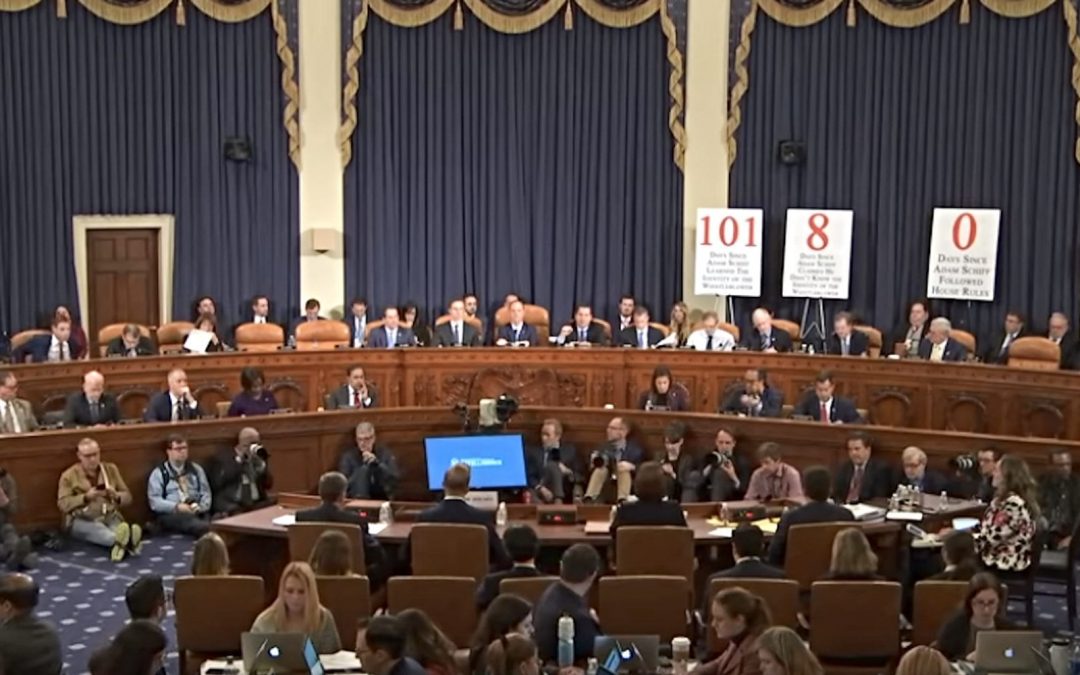The impeachment inquiry hearings left me thankful and hopeful. Let me explain.
Yes, there were myriad examples of the partisanship we’ve come to accept, to our detriment, as a normal part of our political processes.
Yes, there were moments of dismay that the presented facts could be spun and interpreted to reach such disparate conclusions.
Yes, “the swamp,” as it is so affectionately called, seems as swampy as it has ever been.
And yet, the hearings revealed a group of people that should give our nation hope that we have a chance to endure and to become a better version of ourselves: career diplomats and intelligence officials.
Watching most of the coverage available on network television last week, it became clear to me that these career officials are among the most important people in our nation.
Their work ethic and thoughtful approach to designated roles and responsibilities is vital to the health, well-being and functioning of the U.S. government.
They are essential to legal, effective and efficient foreign policy decisions and implementation procedures that seek not only the advancement of our national interests, but also strive to promote the common good of all.
So, on this week in which the U.S. pauses to give thanks, I’m incredibly thankful for their service and commitment to work with administrations and leaders from both parties, transcending the partisanship tainting so much of our political processes.
Throughout these hearings, I was struck by the sharp contrast between the career officials who testified – including Marie Yovanovitch, Fiona Hill and David Holmes – and the elected officials from both parties who asked questions and, at times, offered soliloquies directed at the diplomats with no direct inquiries presented to them for a response.
Yovanovitch has been in the U.S. Foreign Service since 1986, serving as U.S. Ambassador to Kyrgyzstan under George W. Bush, as ambassador to Armenia under Bush and Barack Obama, and as ambassador to Ukraine under Obama and Donald Trump.
Hill is an intelligence expert on Russia, serving on the National Security Council under the Trump administration and as an intelligence analyst under both George W. Bush and Barack Obama.
Holmes has served since 2002 in the U.S. Foreign Service, a career spanning the administrations of two Republicans and one Democrat.
From their demeanor, mannerisms and composure, to their intellect, information recall and knowledge of the subjects under consideration, the career officials came across as poised, intelligent and rational, focused on doing their duty to defend, protect and promote the best interests of the nation.
I wish that the same could be said for all of the officials who testified, as well as for all of the elected representatives who served on the House Intelligence Committee.
Perhaps it is the inevitable result of partisanship that seems part and parcel of daily life in D.C. politics, but it seems that the elected representatives on both sides of the aisle struggled to comprehend that individuals could and would work with administrations from both parties for the good of the country rather than to promote a particular party or politician.
The career officials who testified seemed, at times, to baffle and befuddle the line of questioning presented by representatives from both parties by not “taking the bait” to agree with a reframing of the testified facts at hand.
In contrast to these career officials, the hearings revealed that for many – elected officials, political commentators and the general public – party affiliation is a more powerful force than morality and ethics consistently applied to actions by our nation’s leaders.
Put another way, determining proper and improper behavior in politics seems to depend more on whether the party in power is “your” party than on the consistent application of a moral system of judgment and a legal standard of what is permissible and what is not.
Consider, for example, a recent Gallup survey revealing that whether respondents desire a president who offers a good moral example or one who agrees with their position on issues changes significantly based on the party in the White House at the time the question is asked.
Such trends and realities cause me to lament the state of our nation and leave me concerned about the ability of the U.S. to be a meaningful, positive influence in the world.
In these moments, I wonder to myself, “If we’re such a mess internally, how can we hope to offer moral leadership in the world and to assist others in addressing their own problems, much less have any legitimacy in doing so?”
And yet, the composure, fortitude and commitment of our career diplomats and intelligence officials to what is true, right and good, as exemplified by Yovanovitch, Hill and Holmes, offers hope and gives me something for which to be thankful even in such turbulent and trying times.
May their tribe increase!


